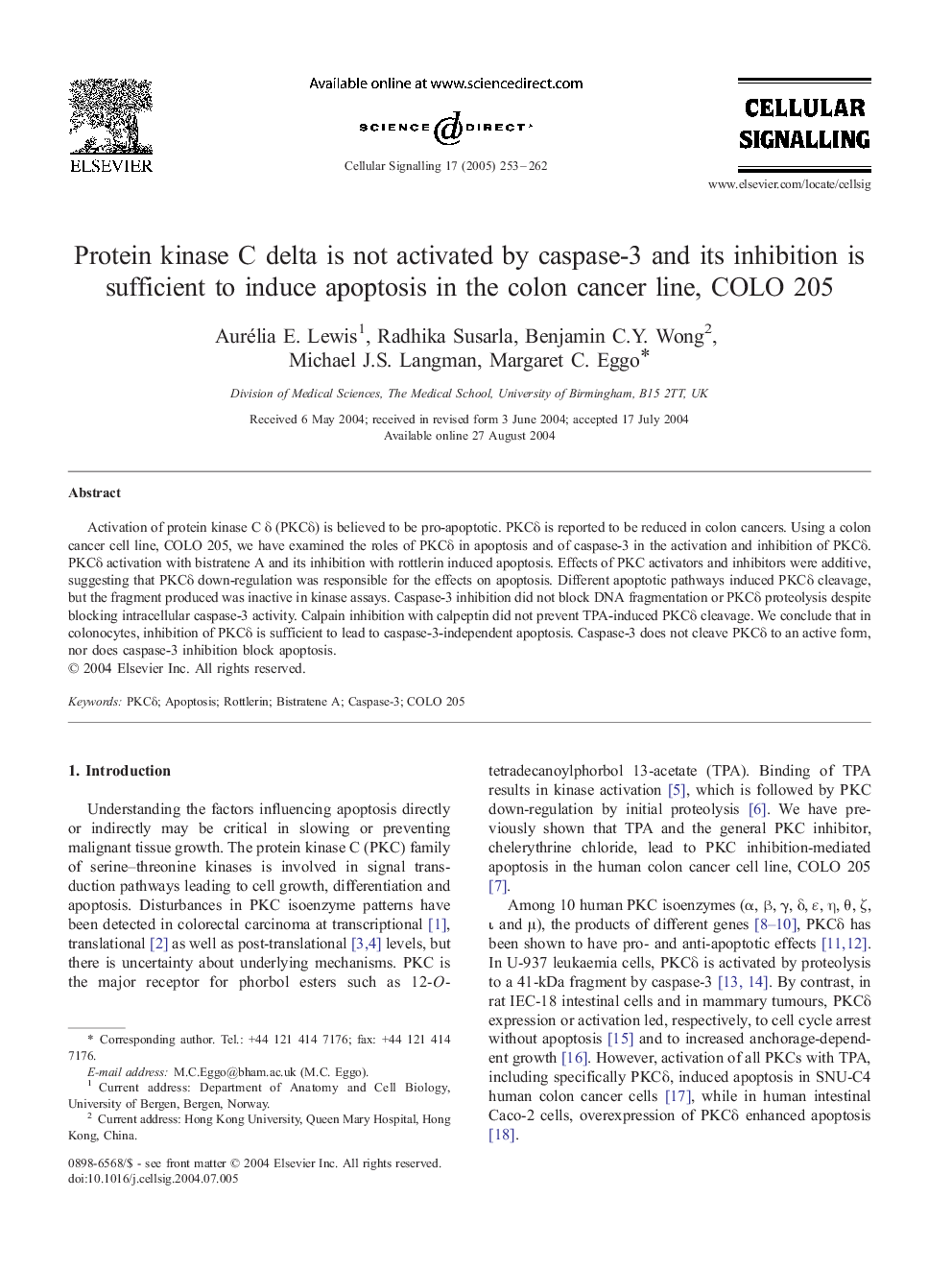| Article ID | Journal | Published Year | Pages | File Type |
|---|---|---|---|---|
| 10816520 | Cellular Signalling | 2005 | 10 Pages |
Abstract
Activation of protein kinase C δ (PKCδ) is believed to be pro-apoptotic. PKCδ is reported to be reduced in colon cancers. Using a colon cancer cell line, COLO 205, we have examined the roles of PKCδ in apoptosis and of caspase-3 in the activation and inhibition of PKCδ. PKCδ activation with bistratene A and its inhibition with rottlerin induced apoptosis. Effects of PKC activators and inhibitors were additive, suggesting that PKCδ down-regulation was responsible for the effects on apoptosis. Different apoptotic pathways induced PKCδ cleavage, but the fragment produced was inactive in kinase assays. Caspase-3 inhibition did not block DNA fragmentation or PKCδ proteolysis despite blocking intracellular caspase-3 activity. Calpain inhibition with calpeptin did not prevent TPA-induced PKCδ cleavage. We conclude that in colonocytes, inhibition of PKCδ is sufficient to lead to caspase-3-independent apoptosis. Caspase-3 does not cleave PKCδ to an active form, nor does caspase-3 inhibition block apoptosis.
Related Topics
Life Sciences
Biochemistry, Genetics and Molecular Biology
Biochemistry
Authors
Aurélia E. Lewis, Radhika Susarla, Benjamin C.Y. Wong, Michael J.S. Langman, Margaret C. Eggo,
